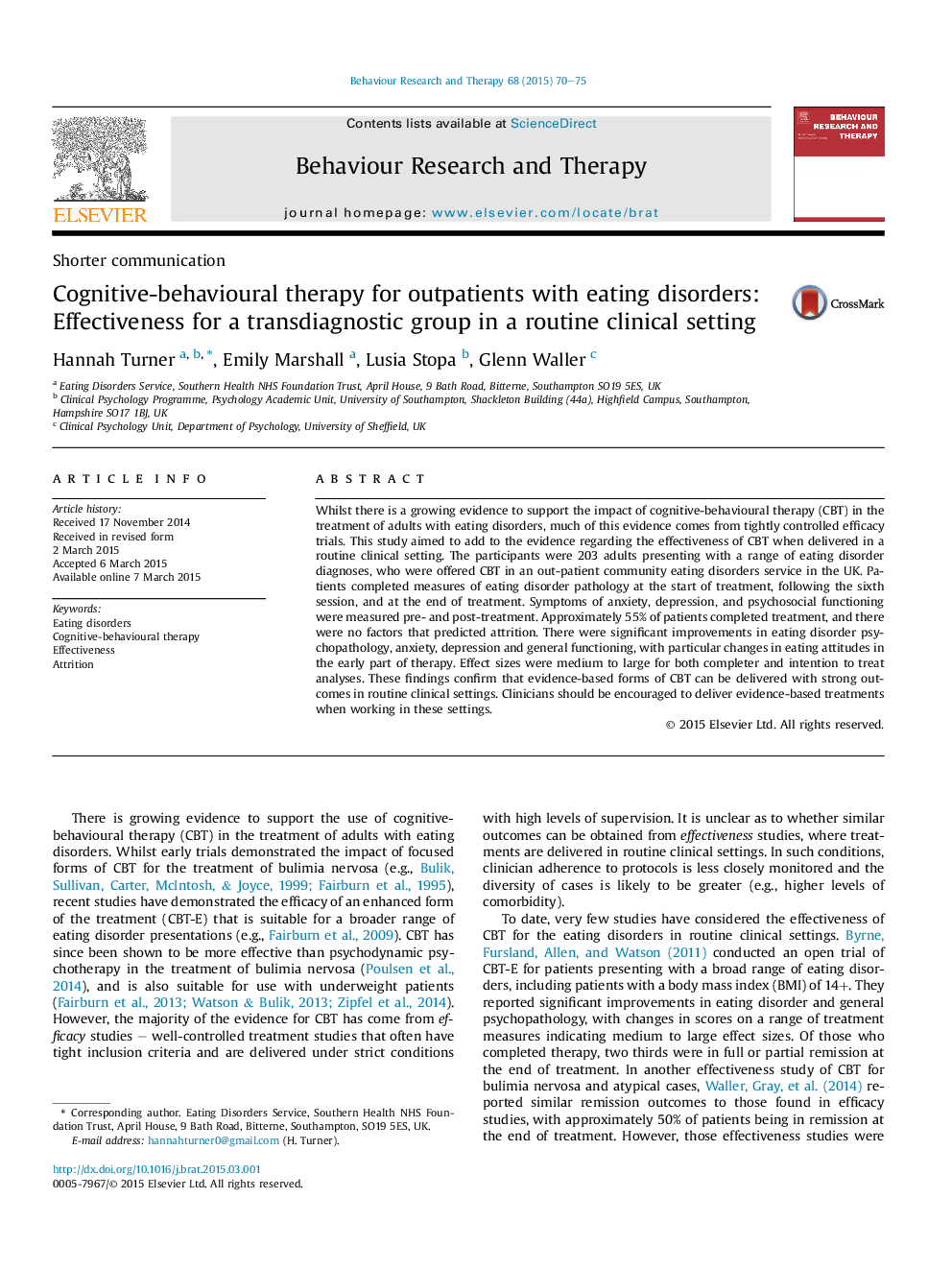| Article ID | Journal | Published Year | Pages | File Type |
|---|---|---|---|---|
| 7262470 | Behaviour Research and Therapy | 2015 | 6 Pages |
Abstract
Whilst there is a growing evidence to support the impact of cognitive-behavioural therapy (CBT) in the treatment of adults with eating disorders, much of this evidence comes from tightly controlled efficacy trials. This study aimed to add to the evidence regarding the effectiveness of CBT when delivered in a routine clinical setting. The participants were 203 adults presenting with a range of eating disorder diagnoses, who were offered CBT in an out-patient community eating disorders service in the UK. Patients completed measures of eating disorder pathology at the start of treatment, following the sixth session, and at the end of treatment. Symptoms of anxiety, depression, and psychosocial functioning were measured pre- and post-treatment. Approximately 55% of patients completed treatment, and there were no factors that predicted attrition. There were significant improvements in eating disorder psychopathology, anxiety, depression and general functioning, with particular changes in eating attitudes in the early part of therapy. Effect sizes were medium to large for both completer and intention to treat analyses. These findings confirm that evidence-based forms of CBT can be delivered with strong outcomes in routine clinical settings. Clinicians should be encouraged to deliver evidence-based treatments when working in these settings.
Related Topics
Health Sciences
Medicine and Dentistry
Psychiatry and Mental Health
Authors
Hannah Turner, Emily Marshall, Lusia Stopa, Glenn Waller,
